Hidden Dangers
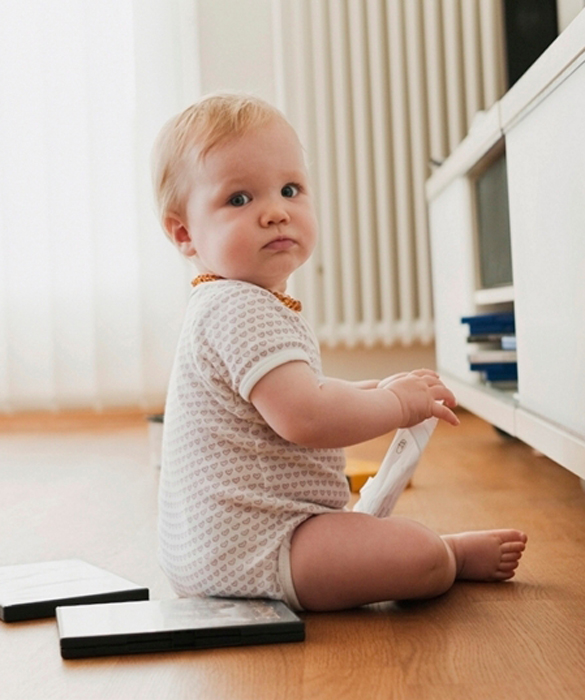
Chances are, accident risks are laying around your home right now. From kitchen magnets to jewelry, it’s hard to think of every possible hazard, especially since there are so many new dangers nowadays. To start with the main problems, we asked Kansas City–based pediatrician Dr. Natasha Burgert which items parents need to keep out of little hands.
Magnets
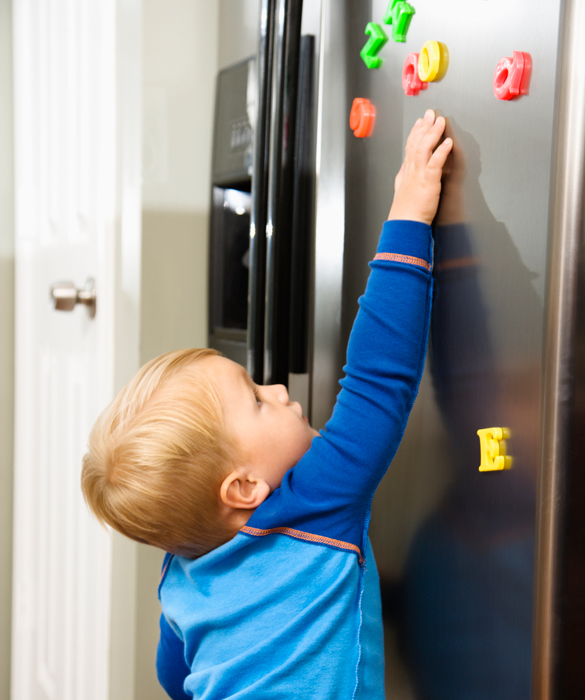
Just like batteries, those small, round magnets can be particularly hazardous if ingested. “They can bunch together in the intestines,” Burgert says. “Magnets can cut off circulation and lead to perforations if left for too long.” Even worse, kids can pop them in their mouths and swallow—and you’d never know. “These can be silent ingestions, and treatment may be delayed. Magnets in the gut may need to be surgically removed.” If your child ingests magnets by accident, he needs prompt medical attention. Call your pediatrician immediately.
Wallets and Coins
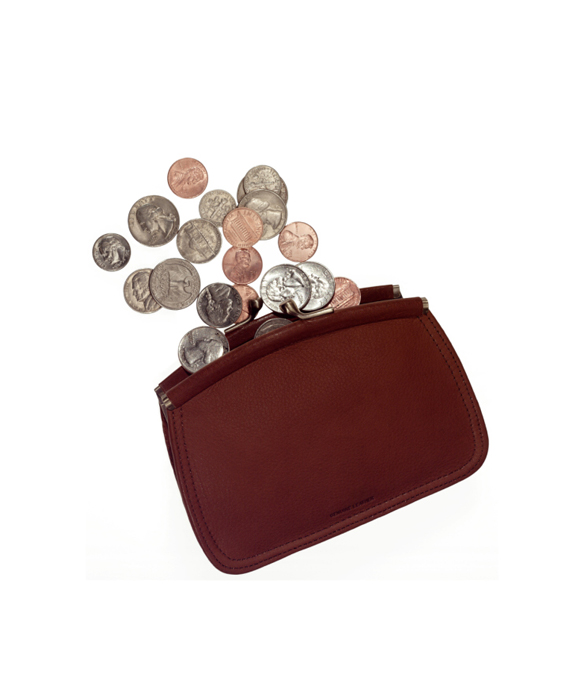
Your purse looks pretty to a toddler playing dress-up—but the contents inside are not for little hands. Wallets contain nickels, pennies and dimes that can be ingested. “I see tons of toddlers distracted by going through all the contents of mom's wallet,” says Burgert. “Be wary of coins. … Most coin ingestions will pass on their own, but it's not a risk I would take.”
Jewelry
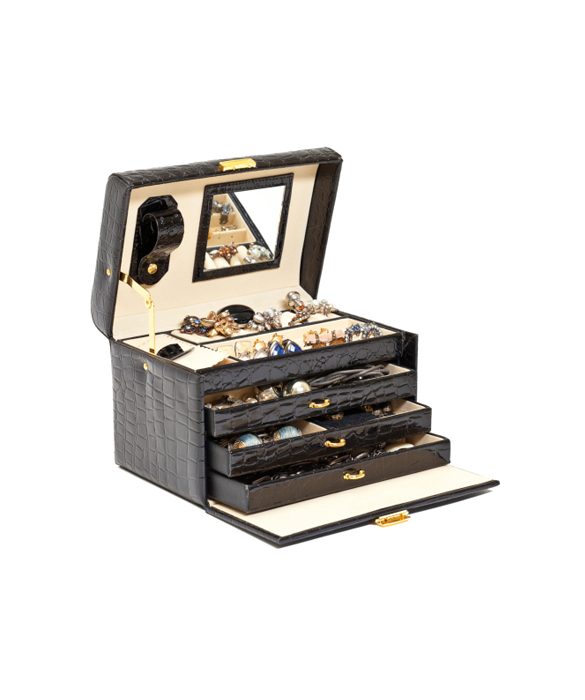
Babies and toddlers love tiny, sparkly things, which can be some of the most dangerous. “Earrings, bracelets, necklaces … these are all shiny and interesting,” Burgert says. “Keep them out of reach of curious tots, as they pose a risk of choking.” And remember to always throw them in a jewelry box or drawer before you leave the house.
Food Plates
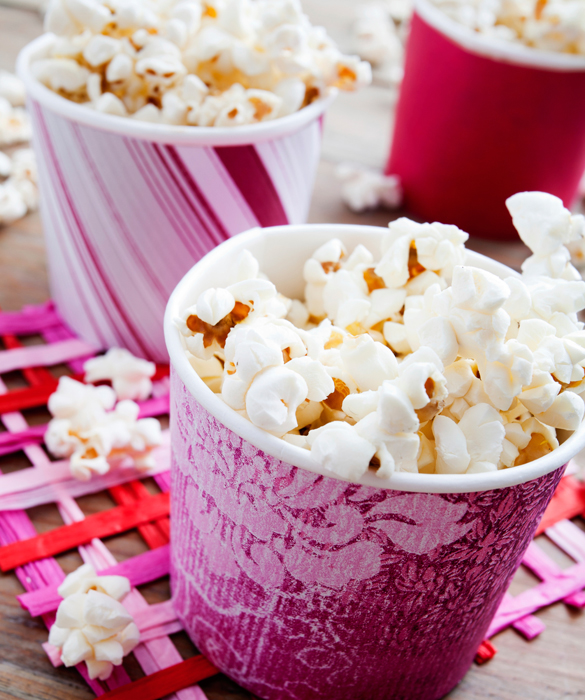
During birthday parties and other big events, food plates pose a major risk. “Adults are talking, distracted, and may put their plate down to go grab another beverage or such,” says Burgert. “This puts curious kids at risk of grabbing interesting food from adult plates that are not cut to appropriate size.” Kids commonly choke on nuts, grapes and popcorn, and get their hands on allergen-containing foods like peanuts, eggs and dairy. Remember that even food, which is meant to be ingested, is not entirely innocuous.
Curling Irons
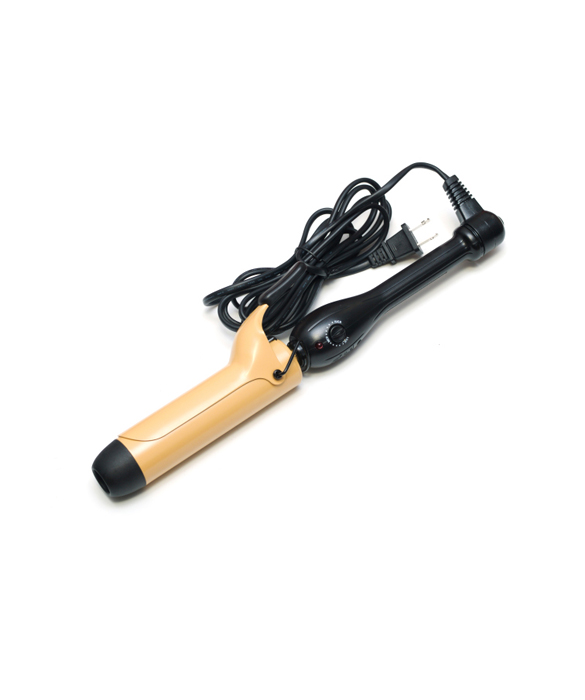
Even after you unplug your curling or straightening iron, it stays scorching hot for a long time. “Most of the burns I see are moms who hurry to unplug everything as they leave the house, but not put things out of the way of curious hands,” says Burgert. Between 1990 and 2006, the ER saw an average of 1.2 million pediatric burns each year. To be safe, put the iron away as soon as you unplug, or keep it on a high counter or shelf above your child’s reach.
'Big Kid' Toys
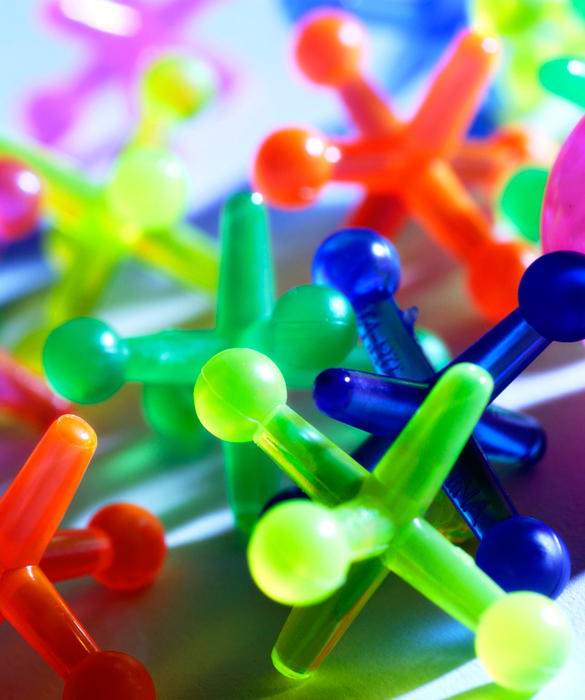
If the toy package says “For ages 6+,” that’s a warning you should heed. “It’s another huge choking risk,” says Burgert. “It's very common when a family has a second child, and the big sibling has ‘big kid’ toys lying around.” Burgert recommends SafeKids.org, which has great choking prevention tips, and also has an idea to get older siblings involved in toddler and baby safety: If a small toy fits through a toilet paper tube, it needs to go in her “treasure box.” Check out Burgert’s video on how to pull it off.
Scissors and Nail Clippers
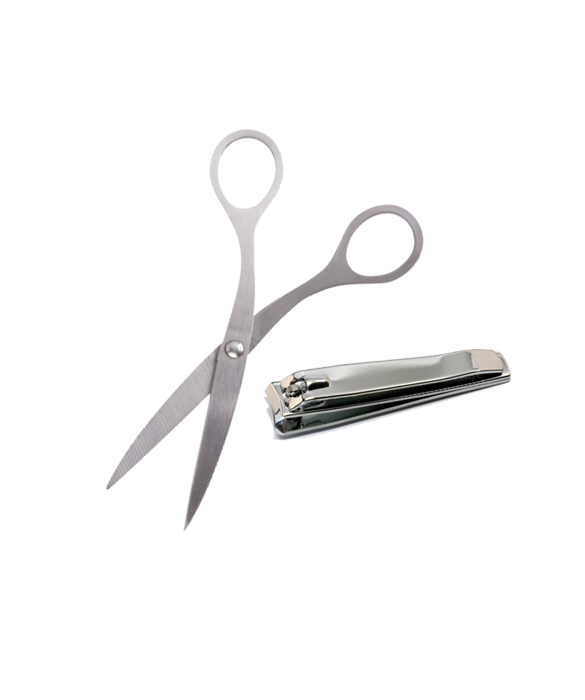
You use scissors and nail clippers every week, and leaving them out or in an easily accessible area poses a cutting risk. You may not think of it, but Burgert says children are attracted to the sharp tools. “Lots of kids like to model ‘trimming of the fingernails’ to themselves and their siblings,” she says. “They do trim the nail, and often the tip of the finger with it.” Watch out.
Medications & OTC Vitamins
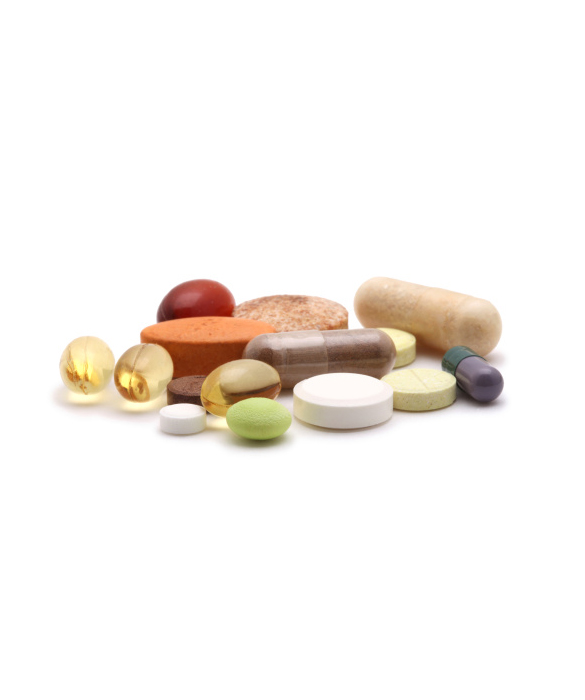
ADHD medication, prescription pain medications, acetaminophen, aspirin—all of these can be very harmful if ingested by little ones. If grandma comes to visit, make sure her medications stay in a cabinet. If you come home from the hospital after your second child is born, don’t forget to store away pain pills. What’s more? “You also need to think about common things, like vitamins with iron,” says Burgert. “Ingesting too much iron can be harmful, and kids know they get vitamins every day. They taste good, and come in huge bottles. You need to watch over-the-counters just as mindfully as prescriptions.”
Coffee and Lattes
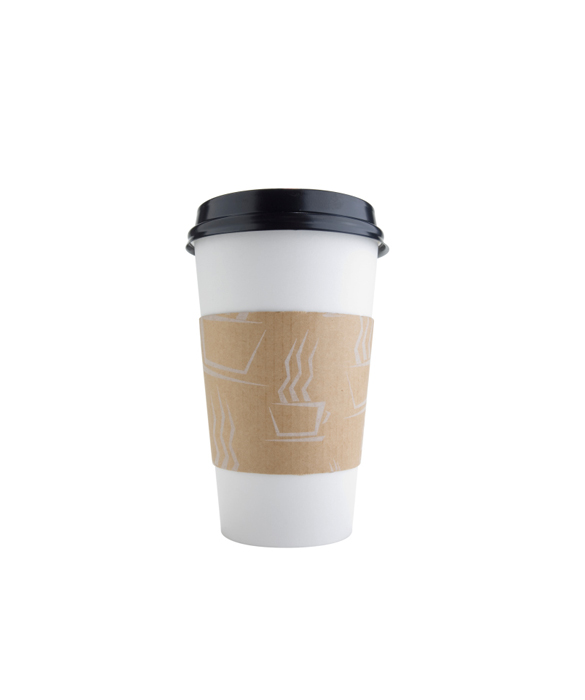
We know you need your caffeine fix in the morning, but remember: your coffee is HOT. Additionally, some neighborhoods serve apple juice in coffee cups that look just like yours, creating confusion. “The kids are grabbing their mom's similar-looking tall cup and getting a swig of hot coffee instead, burning their mouths, and then skin once they reflexively dump the cup or spit,” says Burgert. Make sure your coffee is far away from your child.
Batteries
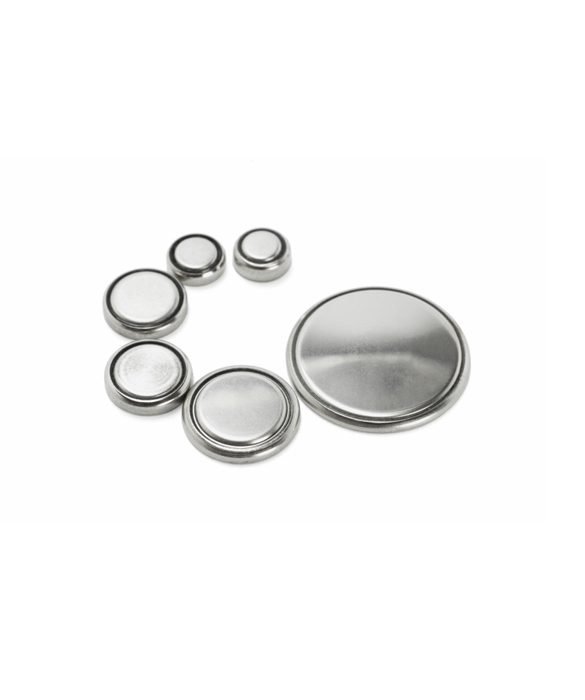
You’ve probably seen the news and studies about the dangers of batteries, but it bears repeating: never leave them lying out, especially the button batteries you find in watches. “We know that batteries can corrode in the stomach, leading to serious, even life-threatening, injuries,” says Burgert. ”Since small batteries can be ingested silently, treatment can be delayed. Batteries need to be stored in a safe place, and toys with batteries should have appropriate guards to restrict access to where the batteries live.” (Those little doors with small screws on toys, for instance.)
Plastic Bags
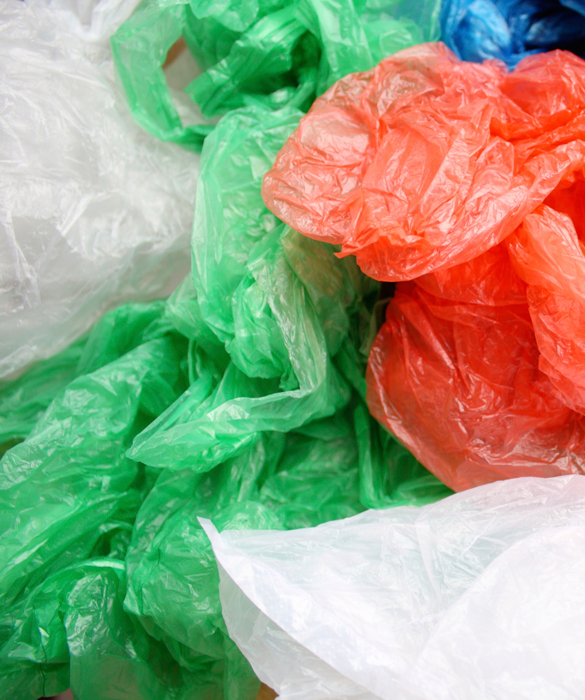
Plastic poses a suffocation risk, and kids might slip those grocery or trash bags over their heads while playing. “Especially with every store in America having plastic bags, items should be removed and the bags properly stored,” says Burgert. “We should not be leaving around our shopping bags after arriving home from the mall.”
Items in the Crib
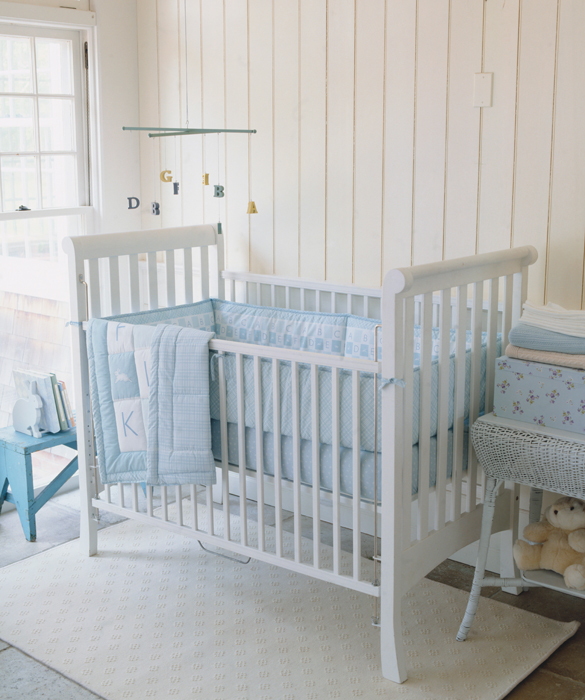
We’ve all seen and heard the devastating stories about Sudden Infant Death Syndrome (SIDS). Take every precaution to protect your baby by monitoring the contents of her crib. “It's easy to use the crib as a baby area on one end, and a supply area on the other end," says Burgert. But this shouldn't be the case: "Moms need to keep the cribs clear of clutter, even if the babies are unable to roll and move.”
